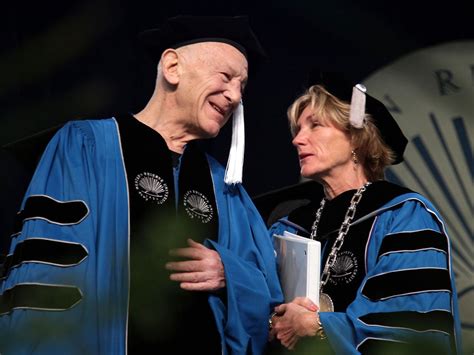A Quote by David Sheff
Though addiction is a disease - a brain disease that's often progressive - addicts who relapse are often blamed.
Related Quotes
There's traditionally been two different ways of seeing addiction. Either it's a sin and you're a horrible bad person and you are just choosing to be hedonist or it's a chronic progressive disease. And while I certainly believe addiction is a medical problem that should be dealt with by the health system, the way we've conceptualized addiction as a disease is not actually accurate, and it has unfortunately become stigmatizing and it's also created a lot of hopelessness in a lot of people.
[T]he truth is that drug addicts have a disease. It only takes a short time in the streets to realize that out-of-control addiction is a medical problem, not a form of recreational or criminal behavior. And the more society treats drug addiction as a crime, the more money drug dealers will make "relieving" the suffering of the addicts.
Though social eugenics was discredited long ago, we still often think of the genome in quasi-eugenic terms. When we read about the latest discovery of a link between a gene and a disease, we imagine that we've learned the cause of the disease, and we may even think we'll get a cure by fixing the gene.
I want good science, and I want it to be realistically marketed. I wouldn't like only two countries on the planet that allow pharmaceutical companies to market directly to people, New Zealand and the United States. It ought to be better regulated. And when it's presented to people, it ought to be presented in a way that's realistic. For example, often people will prescribe antidepressant medications, and we'll say, you have a brain disease; you'll have to be on these medications permanently. There is no biological marker for depression. It's not true that we know that it's a brain disease.
People still think of AIDS as a shame-based disease, it's a sexually transmitted disease, and you're either gay or you're a prostitute or an intravenous drug user. And so a lot of people are still very bigoted about this disease. It's such a treatable disease. It's so - the end is in sight for this disease, medically.
Once and for all, people must understand that addiction is a disease. It’s critical if we’re going to effectively prevent and treat addiction. Accepting that addiction is an illness will transform our approach to public policy, research, insurance, and criminality; it will change how we feel about addicts, and how they feel about themselves. There’s another essential reason why we must understand that addiction is an illness and not just bad behavior: We punish bad behavior. We treat illness.
































